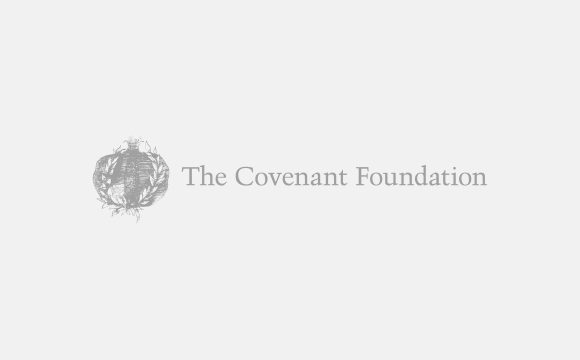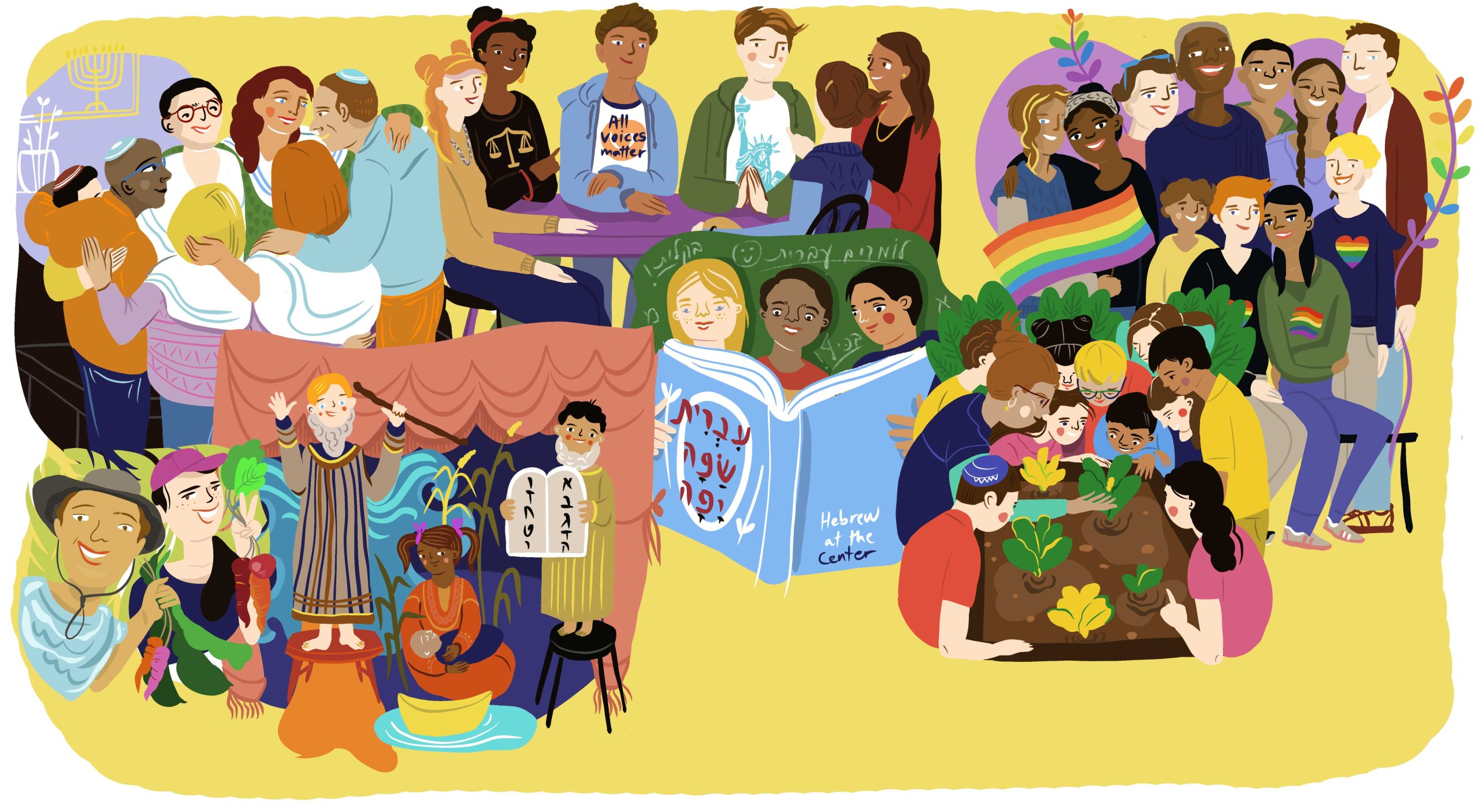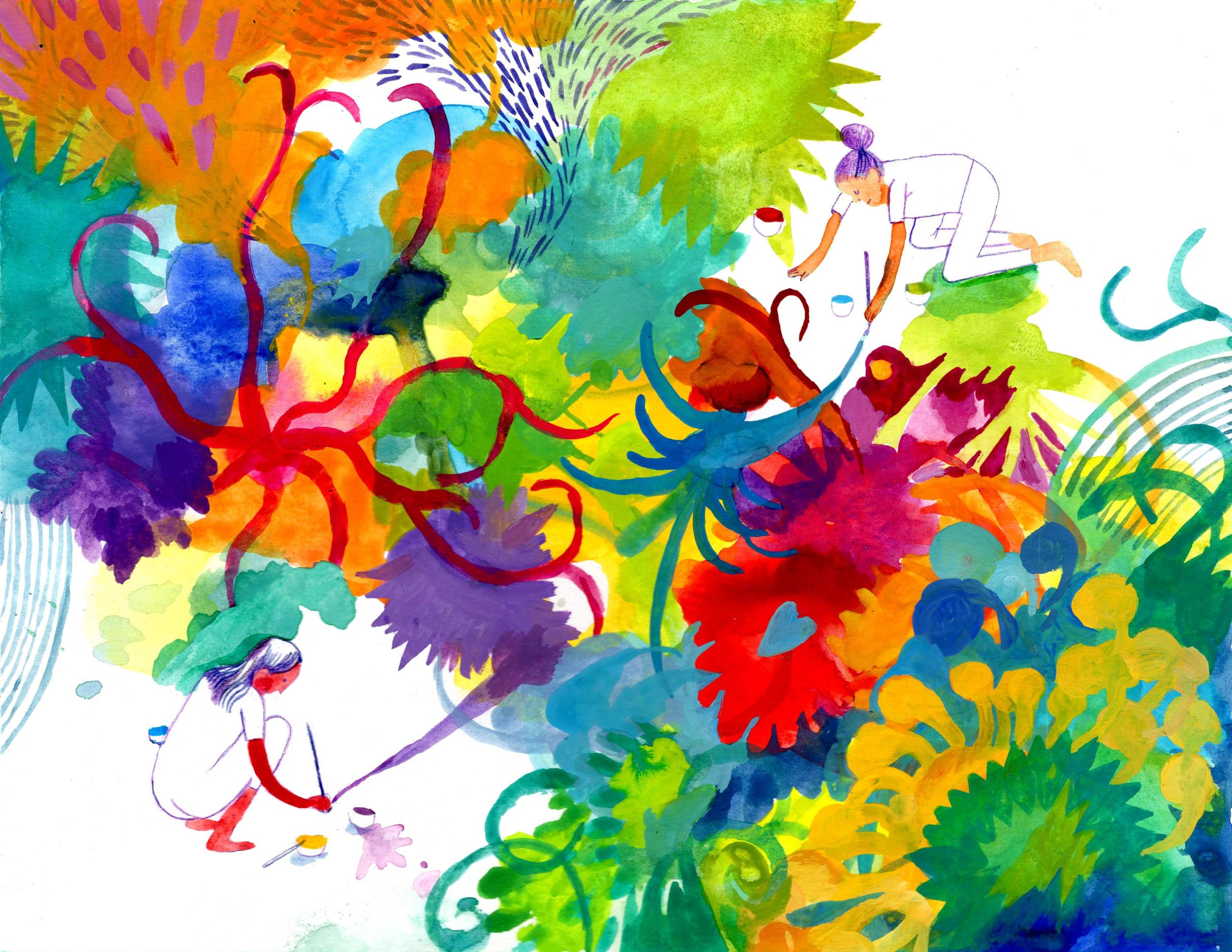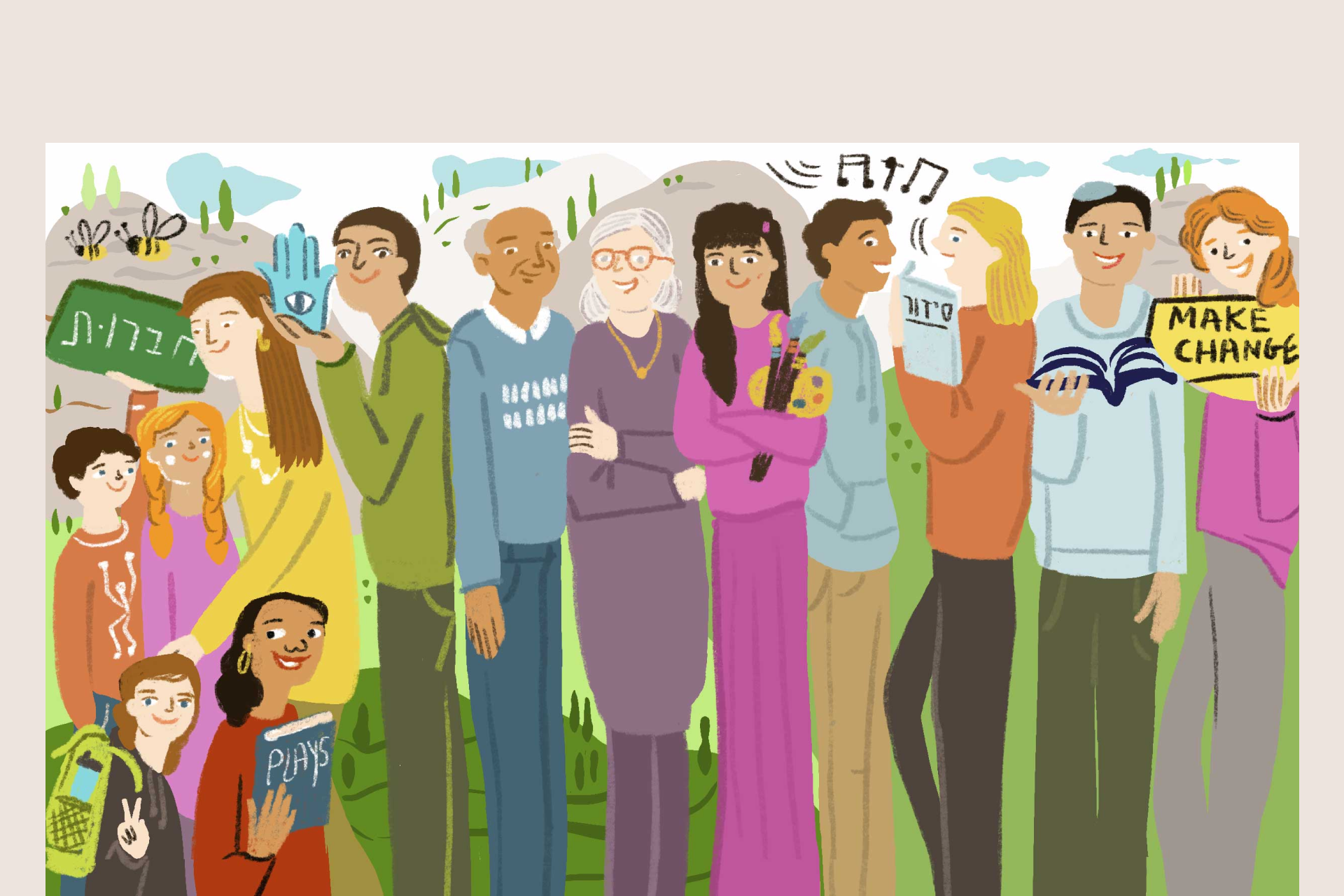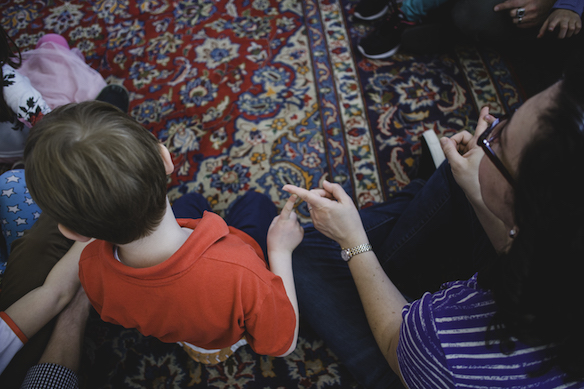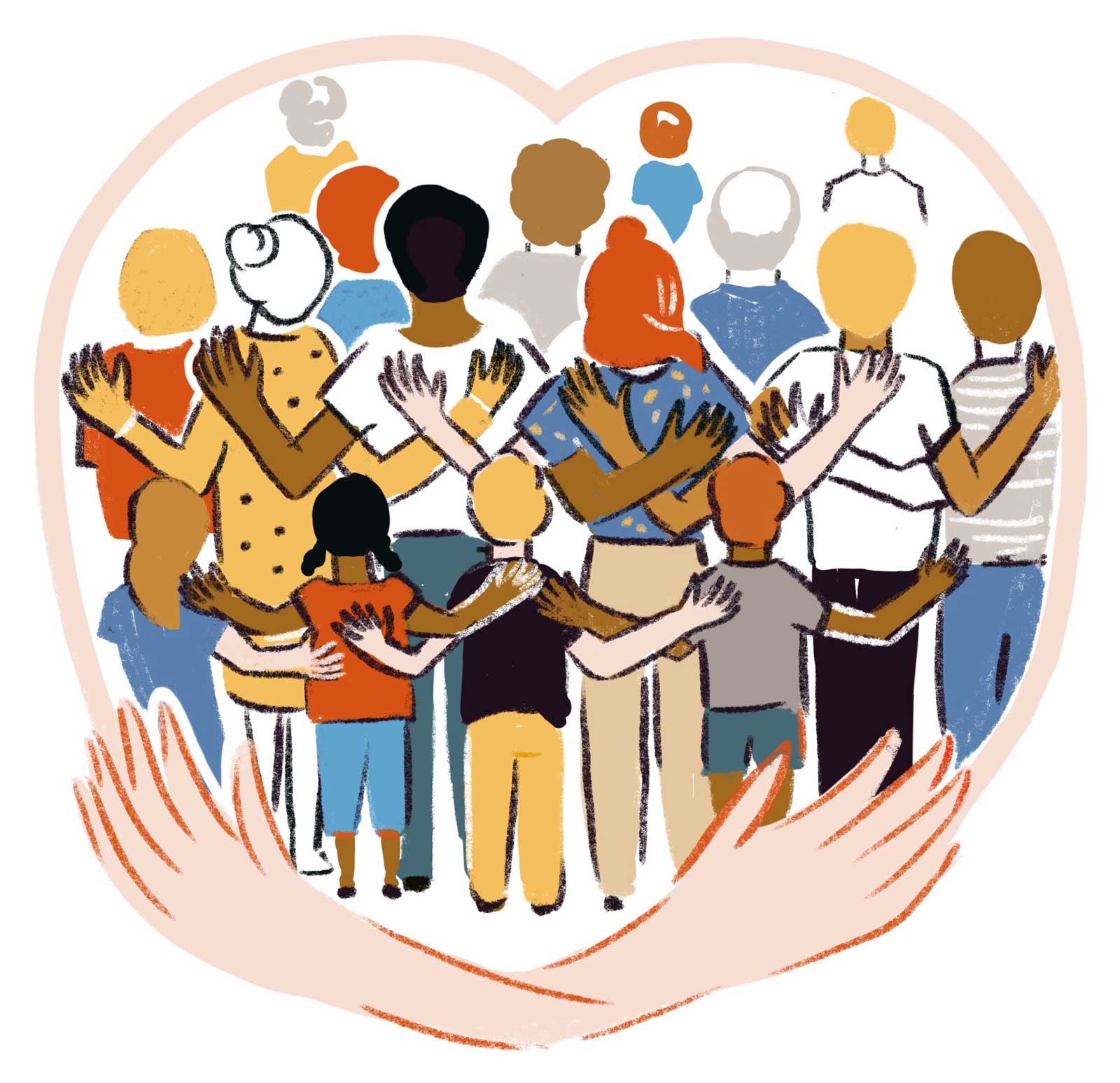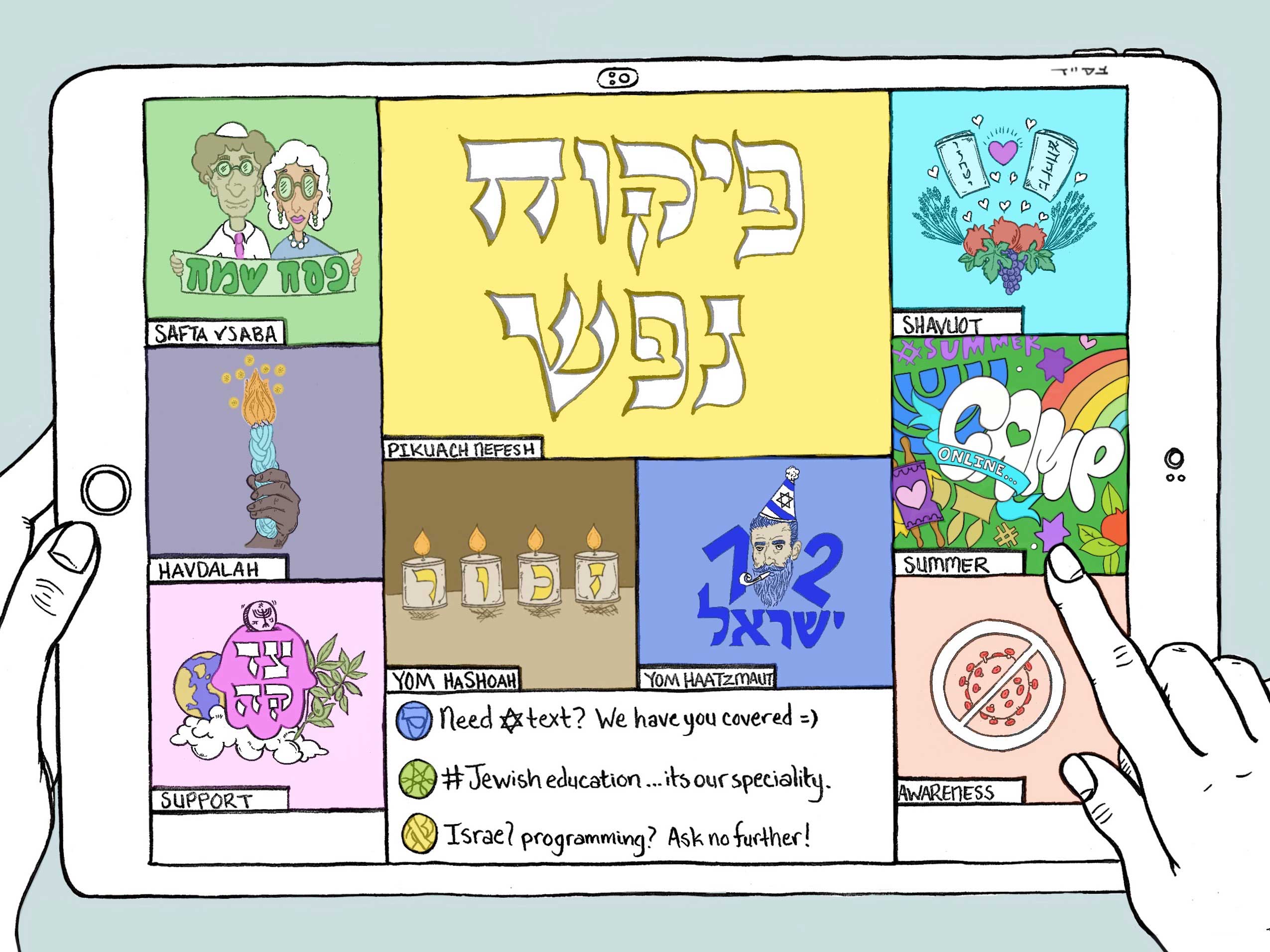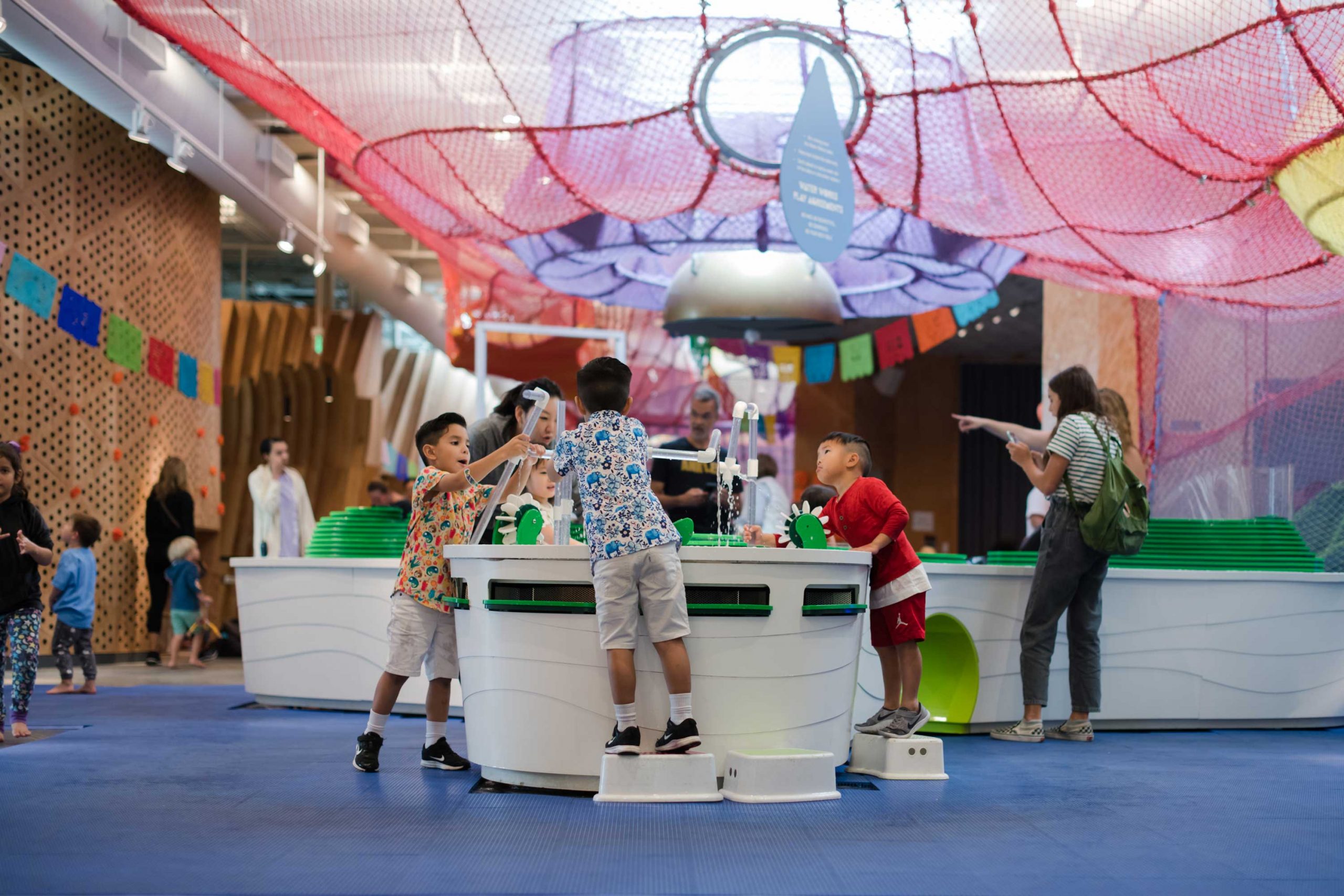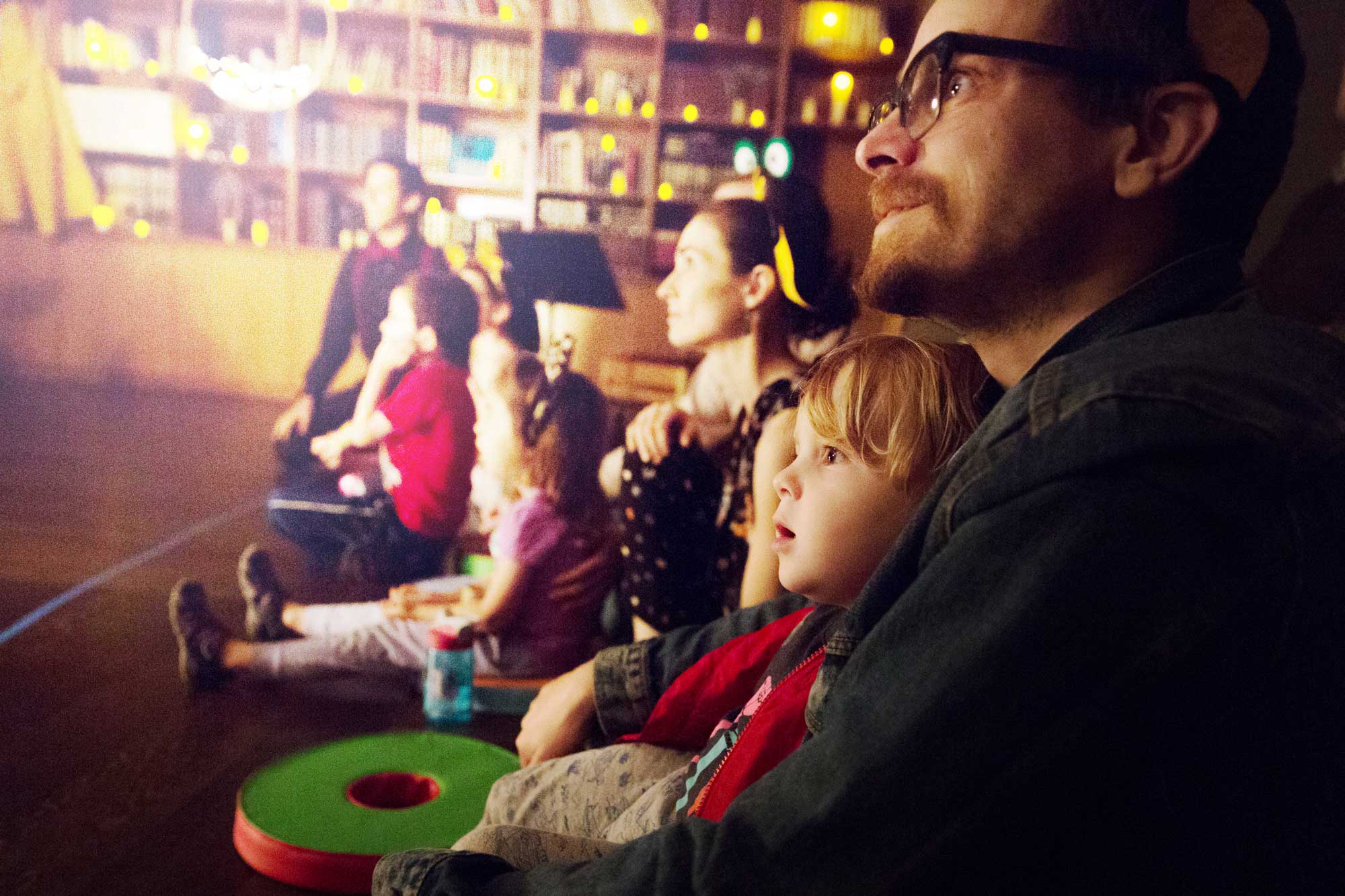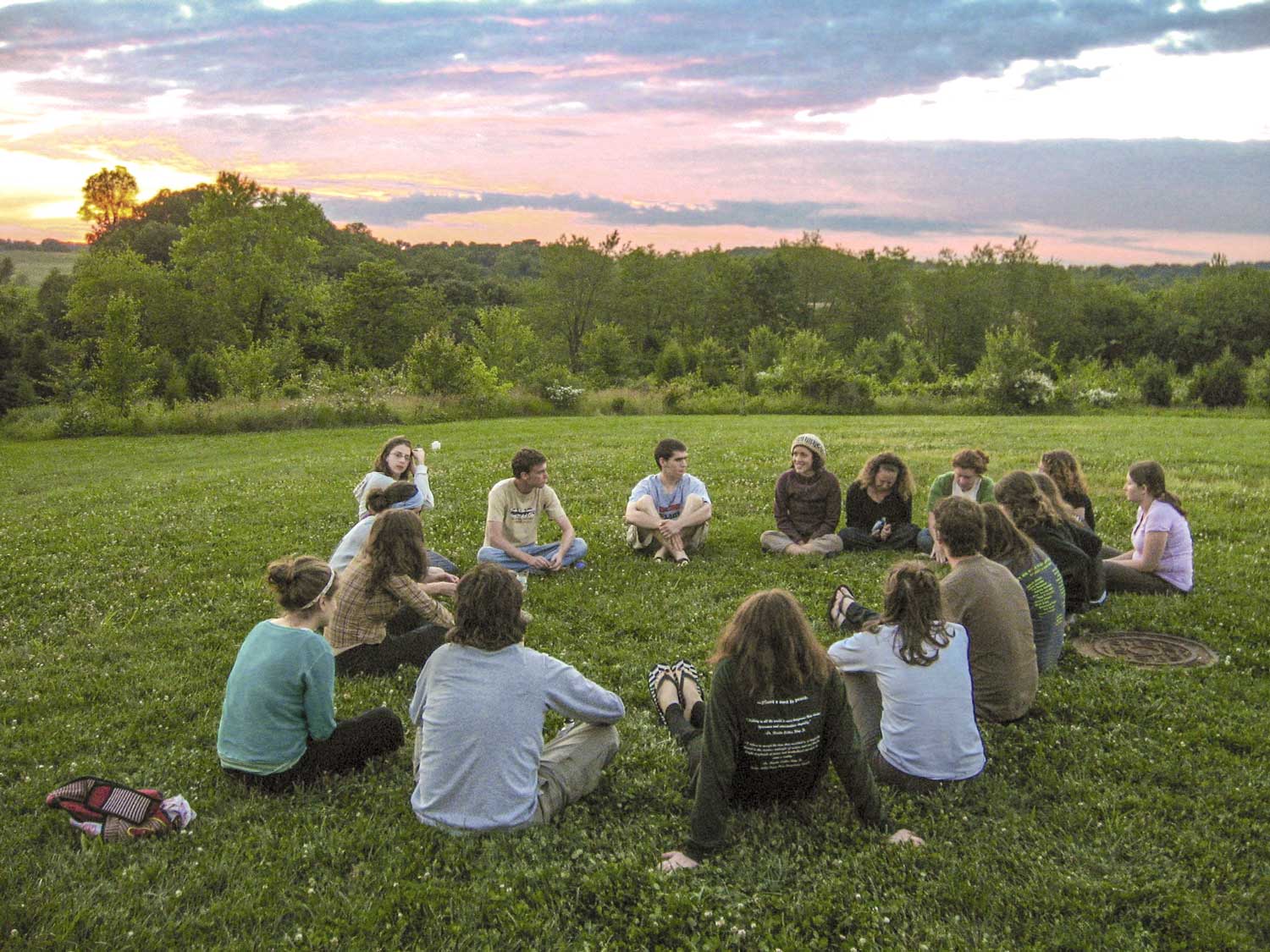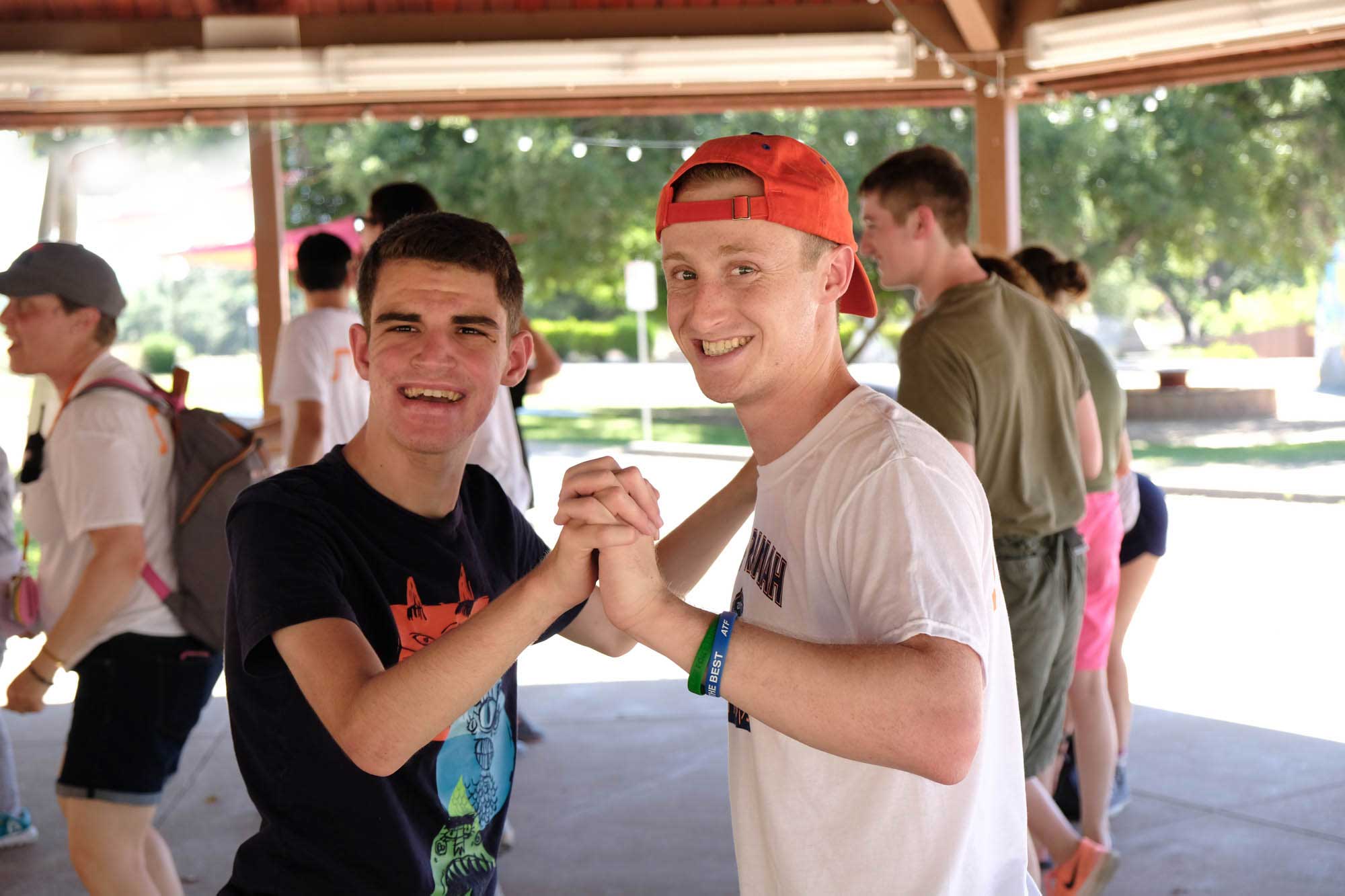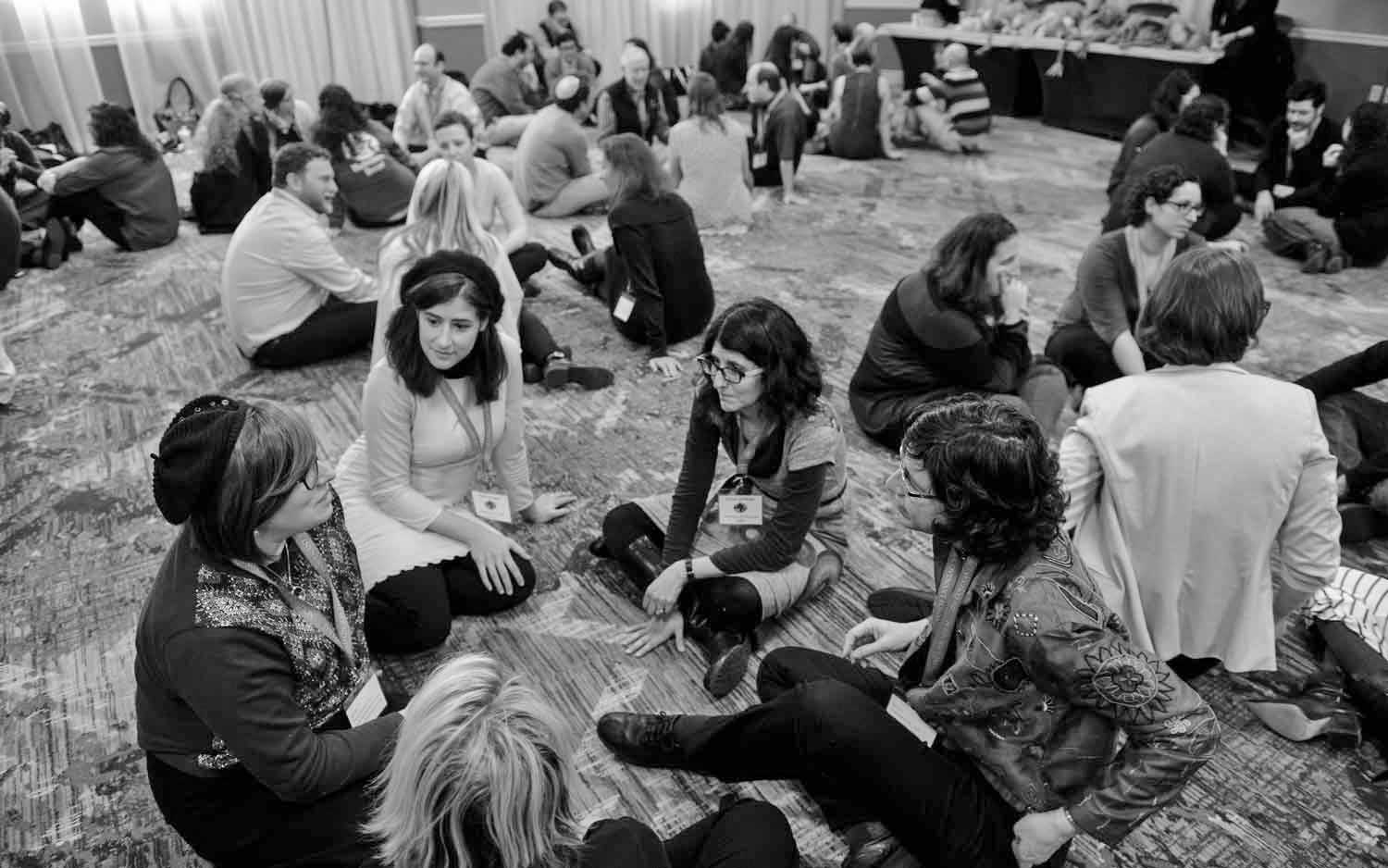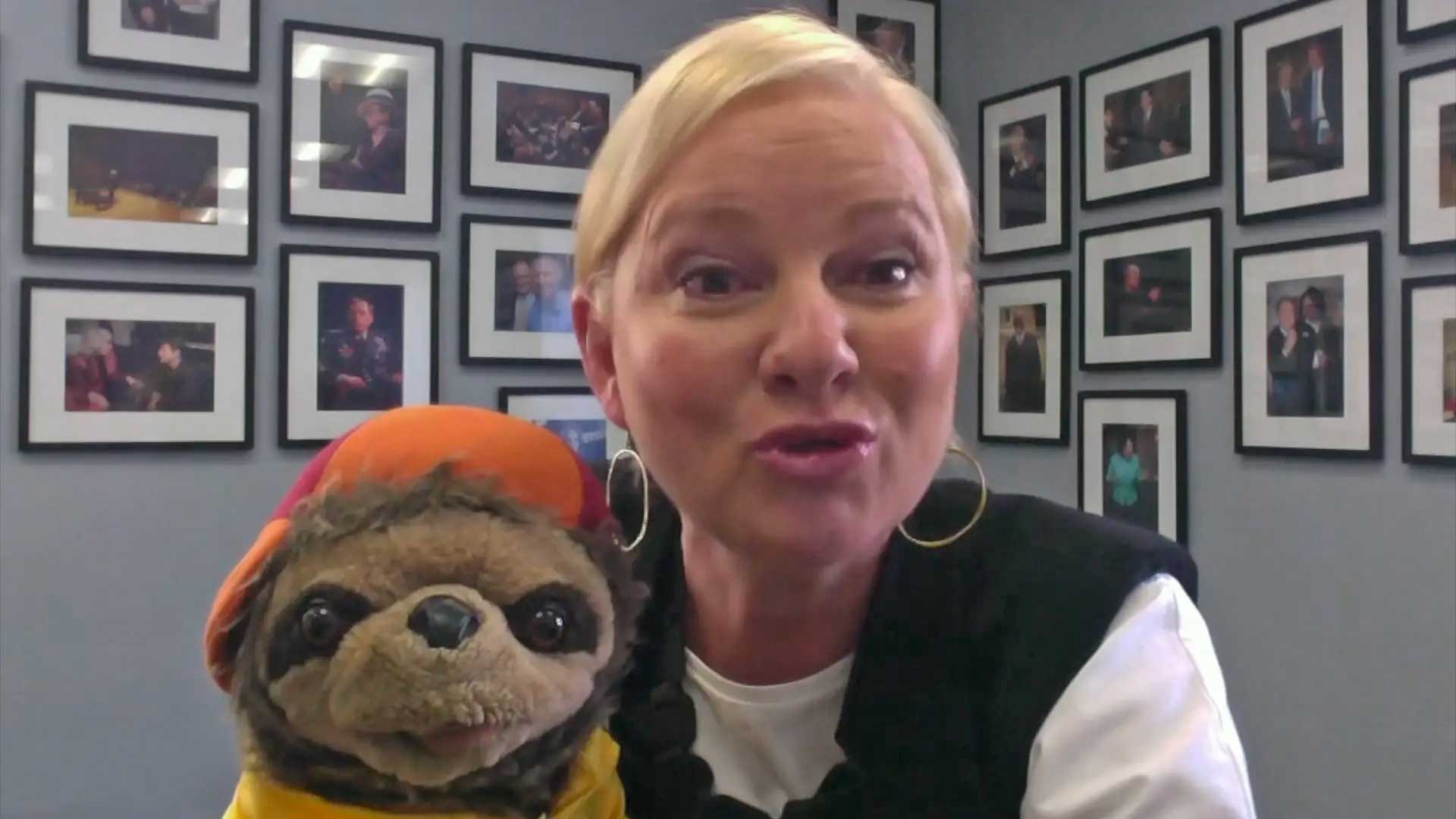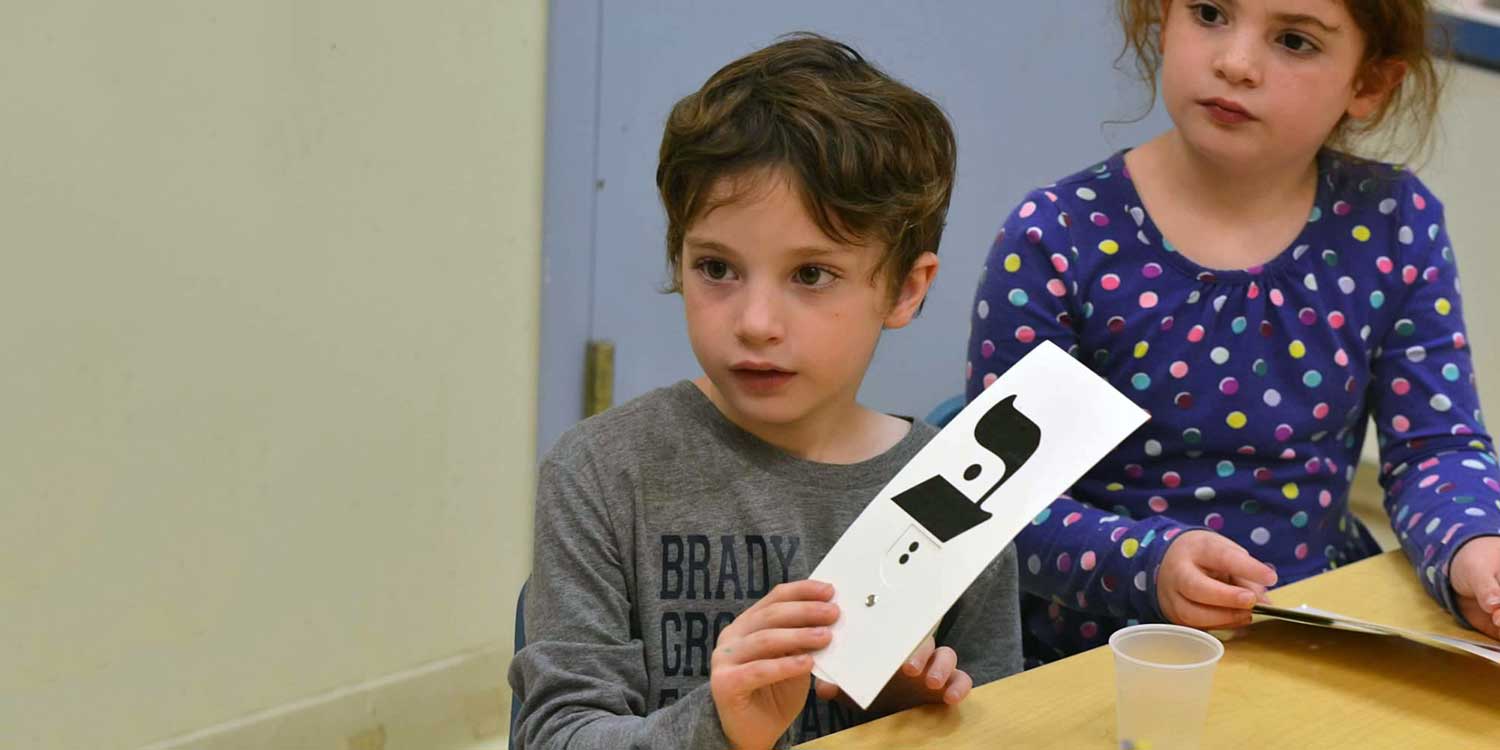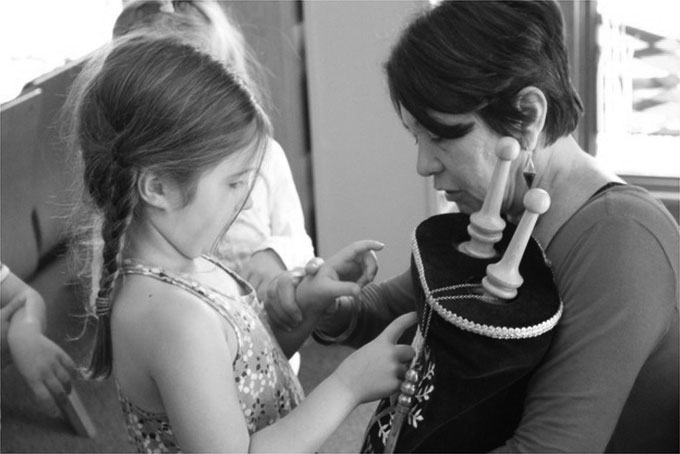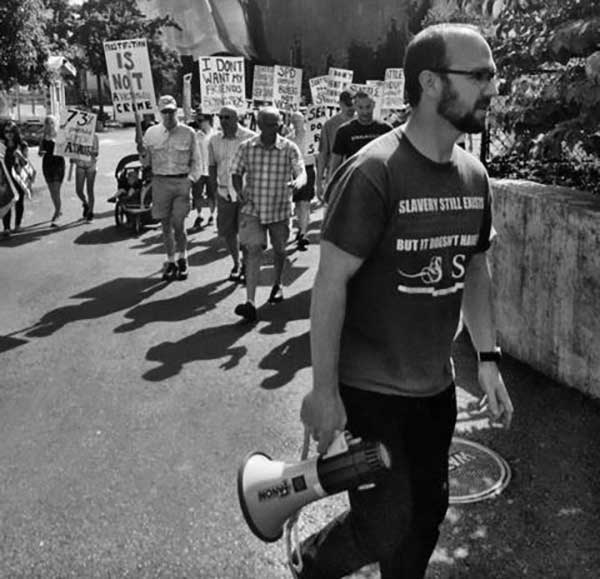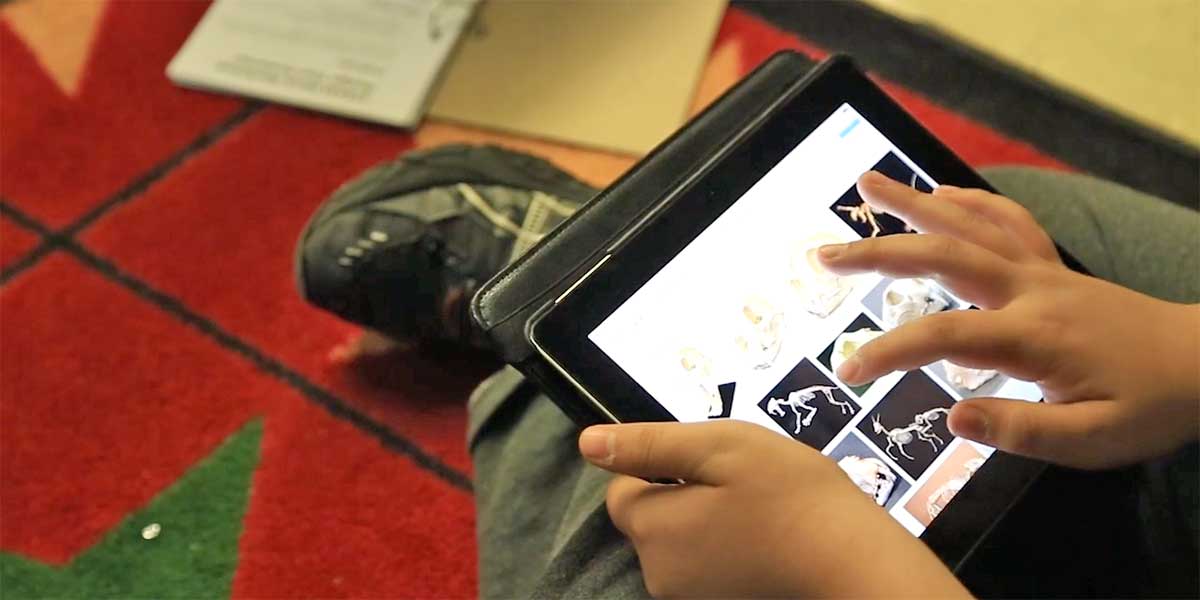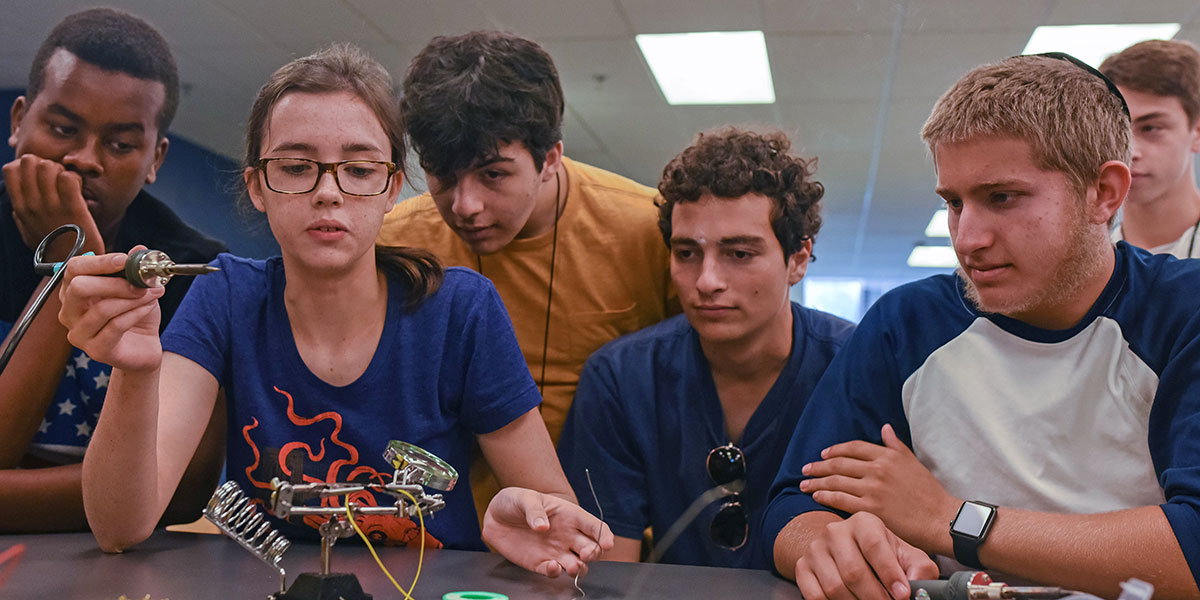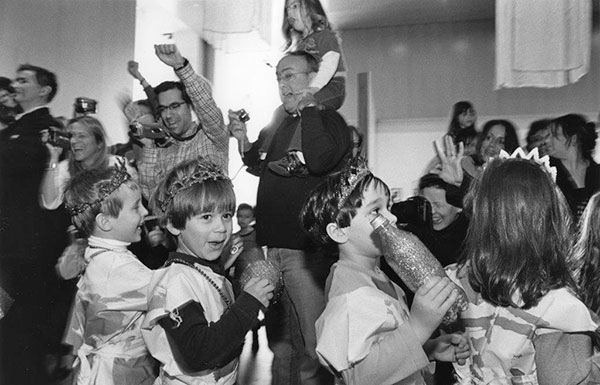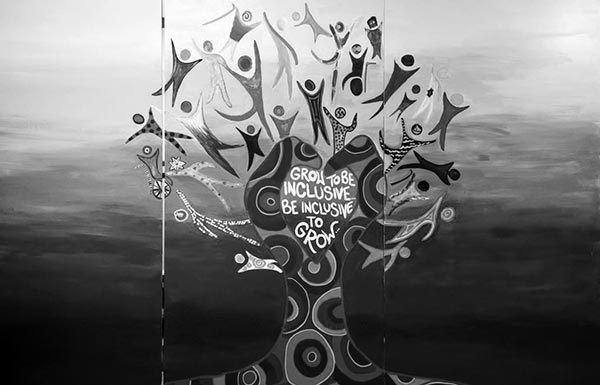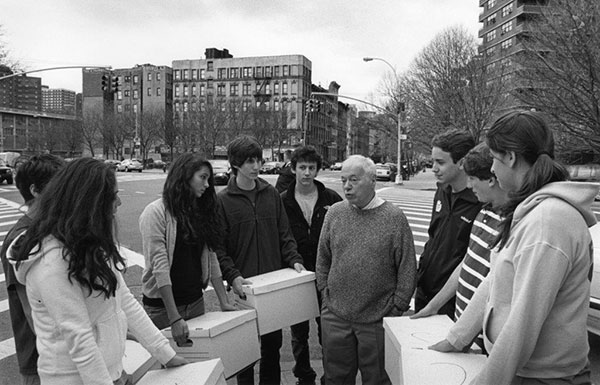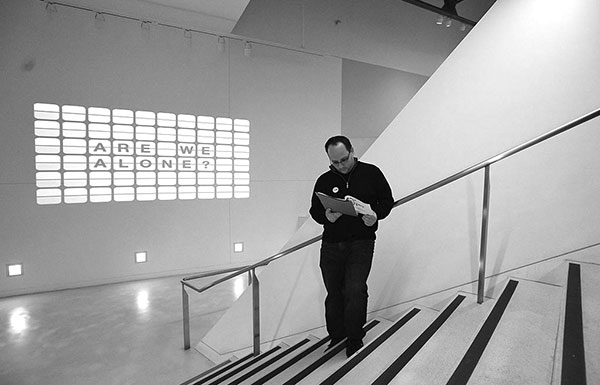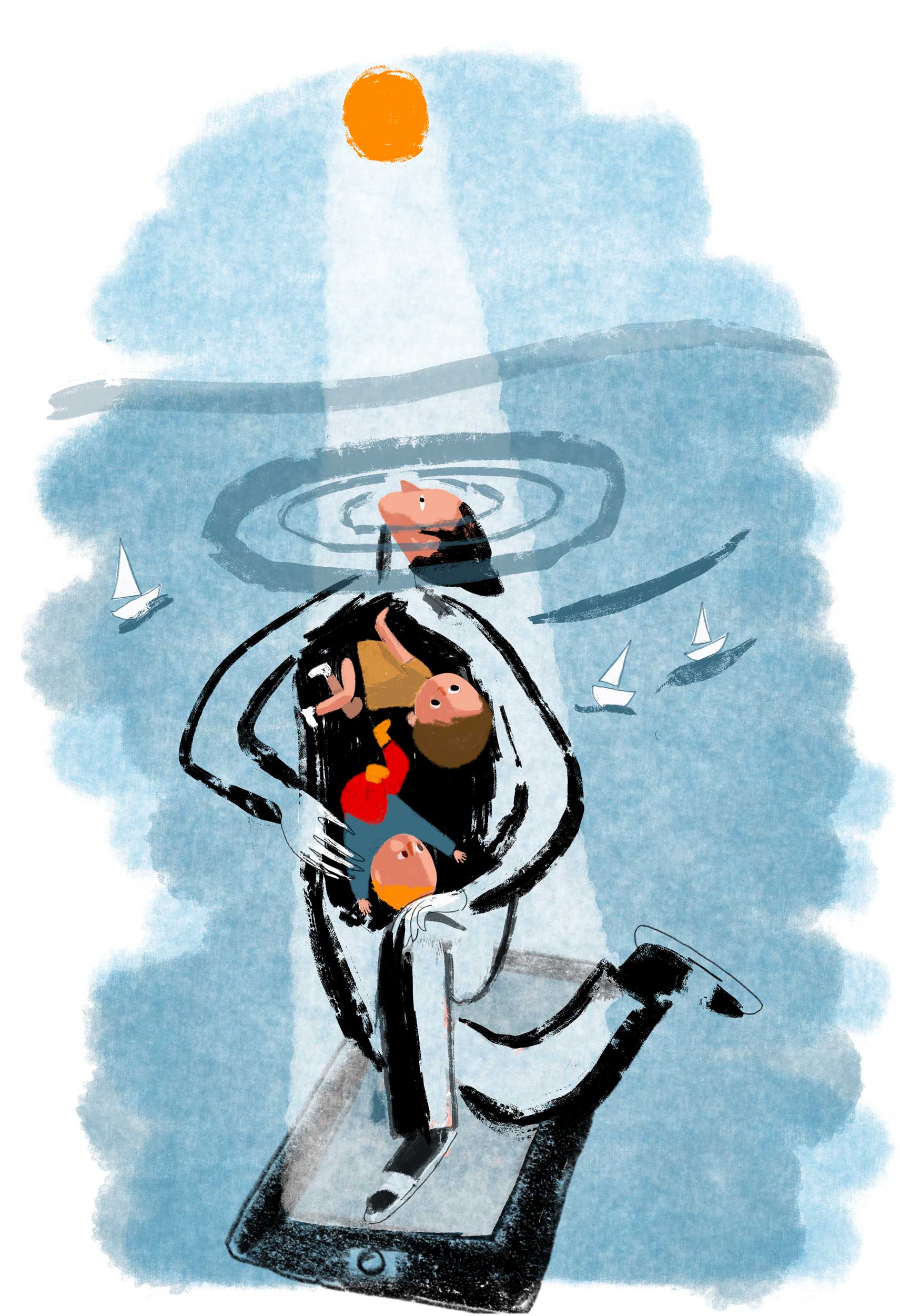
ARTICLE For Parents, Finding Peace in a Pandemic Through Judaism
Every night, instead of tidying up or cleaning the kitchen and then rushing into the bedtime routine for her ten-year-old daughter, Jennifer Loeb sits down for ten to fifteen minutes to do something she truly enjoys. Sometimes it’s calling a friend. Other nights, she sits and meditates while her daughter reads a book in the next room. Sometimes mother and daughter watch a TV show together. “I’m taking time for myself, and that’s something important I’m teaching [my daughter],” Loeb explained.
This new routine, which Loeb said has been life-changing, was inspired by her participation in the Orot: Center for New Jewish Learning program called The Peaceful Parent Project. Launched last year with the support of a Covenant Foundation Ignition Grant, The Peaceful Parent Project is a six-week live immersive group experience that integrates Jewish texts, mindfulness practices, and other sources of wisdom, to nourish and support parents emotionally, psychologically, and spiritually, so that they can in turn better nurture their children. Orot’s cofounders, Rebecca Minkus-Lieberman and Covenant Award recipient Dr. Jane Shapiro, have always been responsive to the “deep human needs” of their learners, helping them to find refuge, comfort, and coping strategies for difficult times amongst the treasure troves of Jewish wisdom. As a parent (Minkus-Lieberman) and both a parent and a bubbe (Shapiro) themselves, they know first-hand the daily challenges parents face.
“We believe that if parents have the space, tools, and opportunity to nourish themselves and care for themselves, that it will naturally ripple out and affect the interactions with their kids,” said Minkus-Lieberman. “[The experience] touches people’s heads, hearts, bodies, spirits—the whole of a person,” she added.
Over the course of six 1.5-hour sessions, parents explore various themes, including shema (listening deeply to yourself and your children), ahava (choosing the path of love), shavat va’yinafash (finding rest amidst the chaos), re’iyah (seeing your children for who they really are), anava (cultivating humility and embracing vulnerability), and hitchadshut (seeing each day as a parent with fresh eyes and new heart, and bringing holiness to the mundane). Minkus-Lieberman, who teaches the course, draws from Jewish teachings (including mussar and Hasidic texts), mindfulness, meditation, philosophy, and contemporary poetry and other modern sources. She begins each session with a breathing exercise and meditation, allowing time for parents to settle their thoughts and engage in personal reflection. After covering the day’s texts and theme, each session ends with suggested practices, both something that parents can try out for themselves and something they can try out with their children.
The most recent cohort of parents began the course in-person back in March. Then the Covid-19 pandemic arrived. But parents didn’t want to stop. They were facing compressed time with kids, a lack of structure from school, emotional uncertainty, isolation, and a lack of support structures. “They needed to feel grounded,” Minkus-Lieberman said.
Fortuitously, she and Shapiro had just finished testing out an online iteration of The Peaceful Parent Project right before the pandemic hit. The online version had been successful, so they quickly transitioned the current parent cohort to all-virtual sessions.
Talya Gepner, parent to a two-year-old and a nine-year-old, was trying to figure out how to take care of herself, engage in her career, and support her children while they were out of school. Inspired by the cohort’s discussion of the “Shabbat mind”—a mindset of finding moments of pause and connection with yourself and your children—she instituted a new weekly family practice at Friday night dinner. Rather than asking for the week’s positive highlights, she creates space for her children to express a full range of emotions while they reflect on both the good and challenging aspects of the week.
“It gives parents a chance to be more authentic, too, and to validate for kids that we don’t have all the answers, we’re not perfect, and we’re learning, too,” said Gepner.
The Peaceful Parent Project theme that stuck most with Jennifer Loeb was shema—listening. Her ten-year-old daughter was going through a rough time during the pandemic, because she couldn’t see her friends. Loeb did her best to empathize but was struggling with how to support her daughter. In the shema session, she learned how to “be in the problem” with her daughter, rather than trying to fix it. “I held her hand and I looked her in the eye, and I said ‘I know it’s so, so hard,’” Loeb explained. “It made her cry more, but it felt like a shared emotion instead of me watching her go through something.”
The shema session also helped Carolyn Reinglass, a full-time parent to five children ranging in age from eight to 19, who faced the enormous challenge of accommodating remote learning for all of them while also dealing with stress from the fact that her husband works in a major care center for Covid patients. Reinglass was particularly moved by the Sefat Emet’s (Rabbi Yehudah Leib Alter of Ger, 1847-1905) commentary on Parshat Vaera, in which he says that “true listening means being open, receptive, and fully present to all things.”
“I learned to pay attention more to my parenting and to increase the space between my children’s actions and my responses to their actions. I am also more intentional about meeting each child as an individual person and listening more to his or her needs, versus imposing a system that I think should work for all of them,” Reinglass said. This space and intentionality has also enabled Reinglass to reframe the current situation, and she now thinks of her family’s time together this summer as an opportunity to slow down and embrace the smaller moments, such as when her children initiate art projects, bake, plant, or play outside in the sprinklers.
Jennifer Loeb was also inspired by a text from neurologist, psychologist, and Holocaust survivor Victor Frankl, which speaks to the power of taking a breath and pausing before responding to stimuli. Loeb called this piece of learning “pivotal” and has adopted the practice of pausing, frequently taking a moment to decide which version of herself will respond to her children.
The practice of pausing and taking a breath was also instrumental for Naomi Shapiro, who found that her patience was wearing thin and her anxiety was increasing while she was home with her two children, ages five and eight, and also working remotely full-time. “Taking a breath and then responding—I have done that too many times to count! That’s been a very useful tool,” she shared.
With no end to the pandemic in sight, and uncertainty surrounding school reopenings and the entire academic year, the need for parents to have this safe space—a “micro-spiritual community” as Shapiro calls it—for learning and support will likely only deepen. As such, she anticipates a flood of interest come September. And, now that The Peaceful Parent Project has gone entirely online for the foreseeable future, the program is no longer limited to participants in the local Chicago community. Indeed, after opening up the program nationally and doing several info sessions on Facebook Live, Minkus-Lieberman heard from parents all over the country (and even one from Brazil!) who are interested in joining a cohort.
“These are parents who have no community right now and are desperate to be with other Jewish parents,” said Minkus-Lieberman. “It’s a gift to be able to offer this right now.”
By Yonah Kirschner, for The Covenant Foundation
More to Consider
- 2017 Covenant Award Recipient - Jane Sherwin Shapiro
- 7 Mindful Parenting Lessons for the Pandemic (Mindful.org, June 2020)
- A Mindfulness Practice for Stressed-Out Parents (Mindful.org, June 2019)
- How Mindful Parenting Differs From Just Being Mindful (Mindful.org, June 2016)
- Jane Shapiro - The Torah of Bubbiehood (ELI Talks)
- What’s Jewish about mindfulness? (JUF News, April 2020)
- When Yoga meets Judaism (JUF News, June 2019)
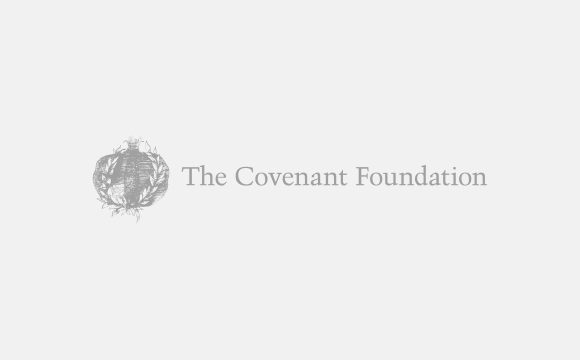
Learning Together: Educating Teachers, Parents and Children in the New Millenium
997
